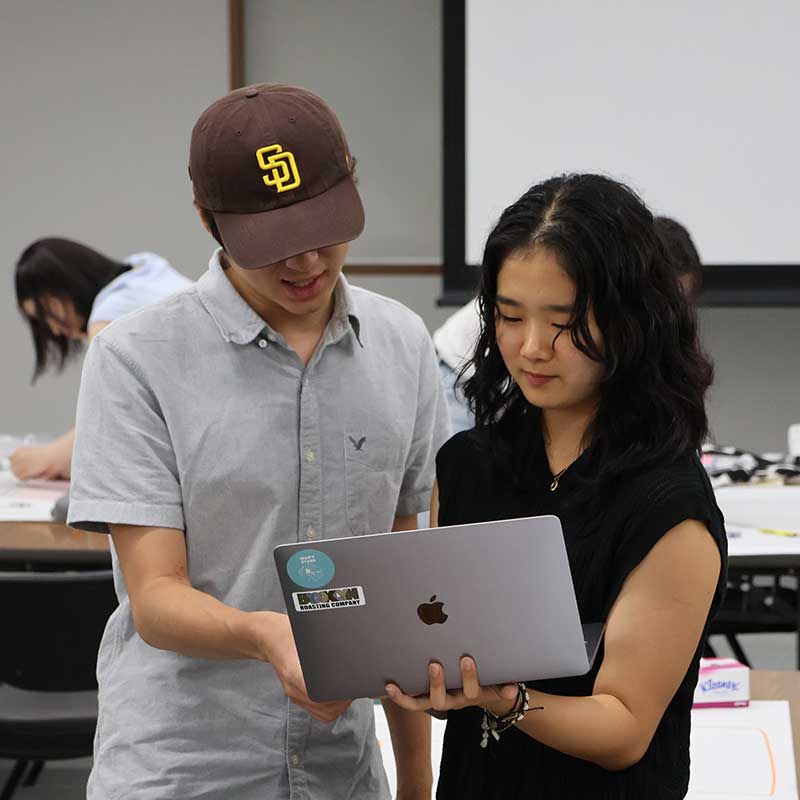
Sociology major expands leadership and education skills in APEX fellowship
Nachi Goto ’25, a sociology major at The College of Wooster, completed an APEX fellowship at Ryugaku Fellowship, a nonprofit organization dedicated to empowering […]
Wooster students graduate fully licensed to teach in Ohio (and are prepared to transfer their licensure to other states). They also graduate with hundreds of hours of classroom experience and lessons learned from their partnerships with teacher mentors, but what makes Wooster education majors sought after by employers is their ability to teach from a liberal arts perspective. Wooster students are critical thinkers, they dig in to research, and they enjoy the curiosity and debate that elevates classroom teaching. Wooster students who become teachers treat their new classrooms like College of Wooster classrooms: robust learning environments. All students at The College of Wooster complete an independent study under the guidance of a faculty mentor. Education graduates from Wooster bring the rigor of independent study to their K-12 classrooms, giving a new generation of learners the benefits of a liberal arts perspective.
The Education major is completed along with a second major in a chosen content area. Students wishing to major in Elementary/Primary Education (PK-5) may double major in any other major offered by the college. Students interested in middle and high school grade levels (7-12) will major in Education with a second major in a specified academic discipline appropriate to the associated licensure area. Upon graduation, students following this course of study will have completed a double major and earned an Ohio, initial, four-year Resident Educator teaching license making them fully licensed to teach in the State of Ohio. Many of our graduates successfully transfer their licenses to other states.
The education minor is an option for students who have an interest in courses on education and working with children, but an education minor does not lead to teacher licensure.
The College of Wooster Department of Education is accredited by the Council for the Accreditation of Educator Preparation (CAEP) for initial programs through Fall 2024. The College of Wooster’s licensure programs are all approved by the Ohio Department of Education. (ODHE).
The following initial licensure programs were included in the Fall 2017 Site Visit and are fully accredited by CAEP:
The following are initial licensure programs that are approved by ODHE and will be undergoing a CAEP visit in Fall 2024:
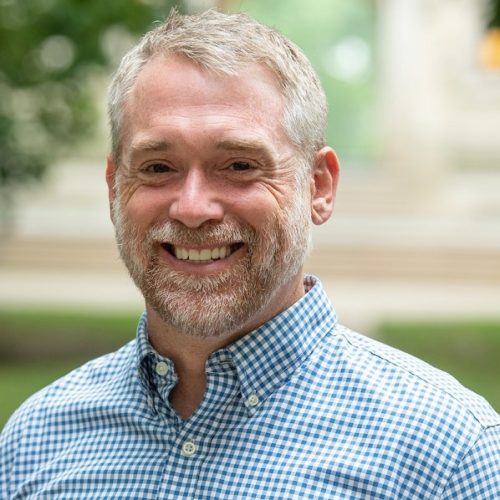
Ruth W. and A. Morris Williams, Jr. Endowed Associate Professor and Department Chair of Education
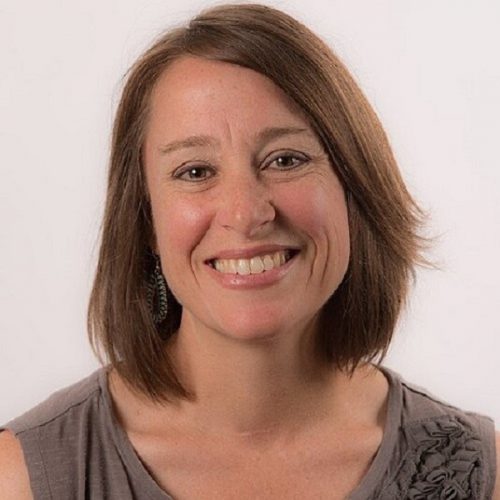
Director of Field, Assessment and Candidate Engagement of Education

Administrative Coordinator, Notary Public - Economics and Business Economics, Education, Psychology

Nachi Goto ’25, a sociology major at The College of Wooster, completed an APEX fellowship at Ryugaku Fellowship, a nonprofit organization dedicated to empowering […]
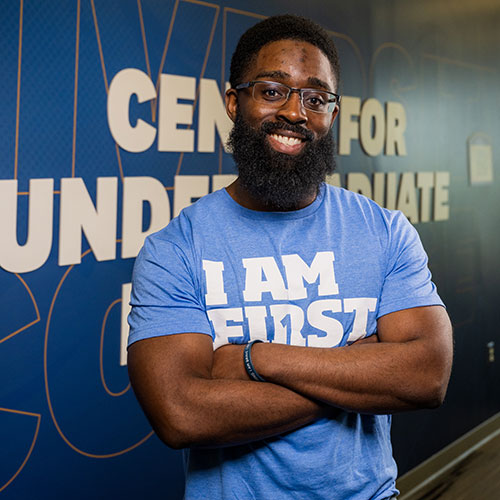
Peter Jeffy ’14 has been helping undergraduate students succeed since he was one himself. As a student mentor with The College of Wooster’s Academic […]
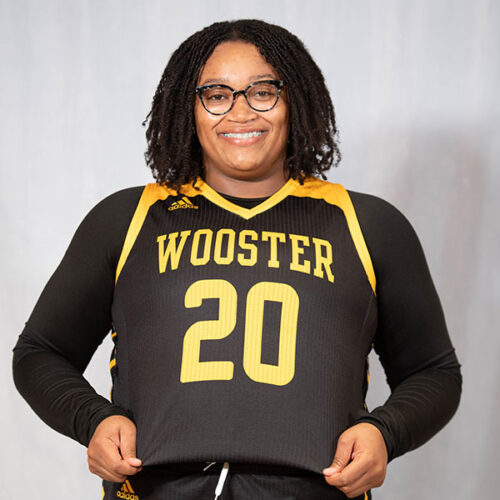
Name: Alexandria-Vivica Walker Title: “To Be Young, Gifted, and Black”: Does ethnic identity, parental nurturance and internal locus of control predict Black undergraduates’ academic achievement? Major: […]
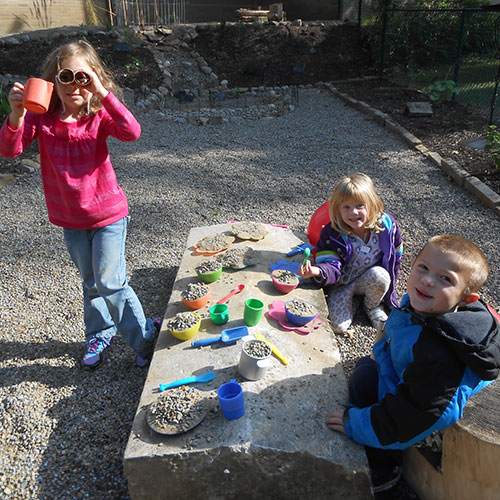
The College of Wooster Preschool (formerly Wooster Nursery School) will reopen in the fall, based on community interest and meeting registration goals. The Preschool […]
The College of Wooster is a CAEP accredited institution. Students who complete the Education major are fully licensed to teach in the state of Ohio. Those who plan to teach elsewhere find that Ohio’s high standards for licensure provide them with a sound preparation for teaching and also allow them to pursue licensure in other states with relative ease.
Wooster students graduate with no less than 700 hours of experience in the classroom. A hallmark of Wooster’s Education major is its partnerships with area educators and schools and its emphasis on field and clinical experiences. Throughout the Education major and licensure process, students are immersed in hands-on, experiential education in area classrooms and schools both before and during the student teaching experience. These activities allow teacher candidates to authentically experience the profession by providing them with opportunities to actively participate in P-12 classrooms. This weaving of theory and practice promotes on-going professional development and prepares teacher candidates effectively for Student Teaching and future teaching experiences.
View CoursesThe minor in Education consists of six courses, beginning with Introduction to Education and continuing with five courses from a list that includes education, sociology and psychology.
View CoursesAll students at The College of Wooster complete two semesters of independent study under the guidance of a faculty mentor. I.S. projects are delivered as a thesis in the spring of each student’s senior year.
| Student | Year | I.S. Title | Major 1 | Major 2 | Advisor |
|---|---|---|---|---|---|
| Please search to view results | |||||
A little black squirrel with tufted ears caught the attention of Lake Barrett ’23, not because of the tufted ears, but because the squirrel […]
History has been a part of life for Glenna Van Dyke ’23 since being born into an Irish-American family in Pittsburgh. She took up […]
Name: Natalie Nonno Majors: Biology, Elementary Education Advisor: Hilary Edgington Hybridization is reproduction between genetically different populations that often result in hybrid offspring. Different factors […]
Name: Shane Louis Major: History Minor: Education Advisor: Jordan Biro Walters My IS looks at Blues songwriting in the 1960s and argues that themes in […]
Areas of Teacher Licensure
Wooster offers programs for teaching licensure in the following areas:
Graduates of Wooster’s Teacher Education program pursue a variety of professional opportunities.
While many teach in traditional public and private schools, graduates also contribute to the education profession in other ways. In addition to teaching, Wooster alumni are employed as school administrators, school counselors, athletic coaches, intervention specialists, school psychologists, speech-language pathologists and higher education faculty.
We also recognize the importance of supporting students interested in alternative teaching opportunities such as Teach For America, charter schools, Teaching Fellows, Urban Teachers, City Year, etc.
Peter Jeffy ’14 has been helping undergraduate students succeed since he was one himself. As a student mentor with The College of Wooster’s Academic […]
When Alpha Alexander ’76 was a student athlete at The College of Wooster, she was one of the few Black women on her teams. […]
Veteran history teacher Kurt Russell ’94 is taking a year-long sabbatical from teaching at Oberlin High School in Oberlin, Ohio. It’s not a vacation […]
Sly Slaughter ’98 extends Wooster-learned lessons to his students
CAEP regularly monitors how each Educator Preparation Program (EPP) updates and publicly reports completer effectiveness and impact, satisfaction of employers and stakeholder involvement, candidate competency at program completion and the ability of completers to be hired in education positions for which they have been prepared on its website. This addresses the EPP’s continued effort to share widely, completer impact and outcomes data. EPPs are responsible for clearly identifying and prominently displaying data pertaining to each of the Accountability Measures on its website so that information is easily visible and accessible to the public.
Measure 1: Completer Impact and Effectiveness (R4.1)
Completer impact in contributing to P-12 student learning-growth AND completer effectiveness in applying professional knowledge, skills, and dispositions.
Measure 2: Satisfaction of Employers and Stakeholder Involvement (R4.2|R5.3)
Satisfaction of Employers
Our EPP administers the Perceptions of EPPs Survey, and the data is collected and shared with our EPP. State benchmark data for 2023 will be available in early Summer 2024 and will be added to this report at that time.
Stakeholder Involvement
The Department of Education at the College of Wooster engages stakeholders through various means. One such means is our External Advisory Board (EAB), which is composed of professionals such as teachers, principals, superintendents, and central office administrators. We rely on this board to provide input on critical decisions such as curriculum and assessments. Additionally, we convene an Internal Advisory Board (IAB), which comprises liaisons, administration, and other representatives from departments such as library, APEX, athletics, and admissions. This group helps us evaluate our programmatic needs and assess our impact across campus.
In the academic year 2022-2023, we met with the IAB, on December 1, 2022 and the EAB on May 10, 2023 where we sought their expertise to inform our practice. The agendas from theses meetings showcase the various ways we utilize their insight.
Measure 3: Candidate Competency of Program Completion (R3.3|R3.4)
Title II Section 207 of the Higher Education Act (HEA) requires states, as recipients of HEA funds, and all institutions with teacher preparation programs that enroll students receiving federal financial assistance, to prepare annual reports on teacher preparation and licensing. The reports detail the enrollment and completion of our candidates.
College of Wooster graduates exceed the mean scores required for their licensure exams. Measures of competency at completion include demonstrated mastery of planning, teaching, and assessment for all candidates.
Measure 4: Ability of Completers to be Hired in Education Positions for Which They Have Been Prepared
Data gathered is related to completers employment in teaching positions for which they were prepared in year one and year two after graduation. Several of our completers teach outside of Ohio after graduation; therefore, we rely on EPP gathered data based on individual responses.